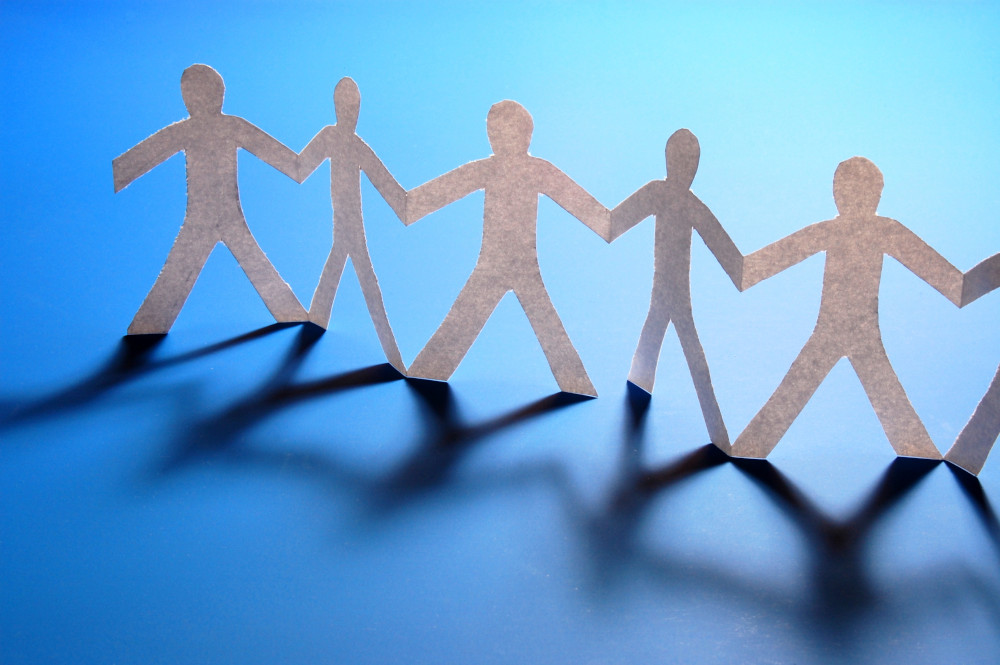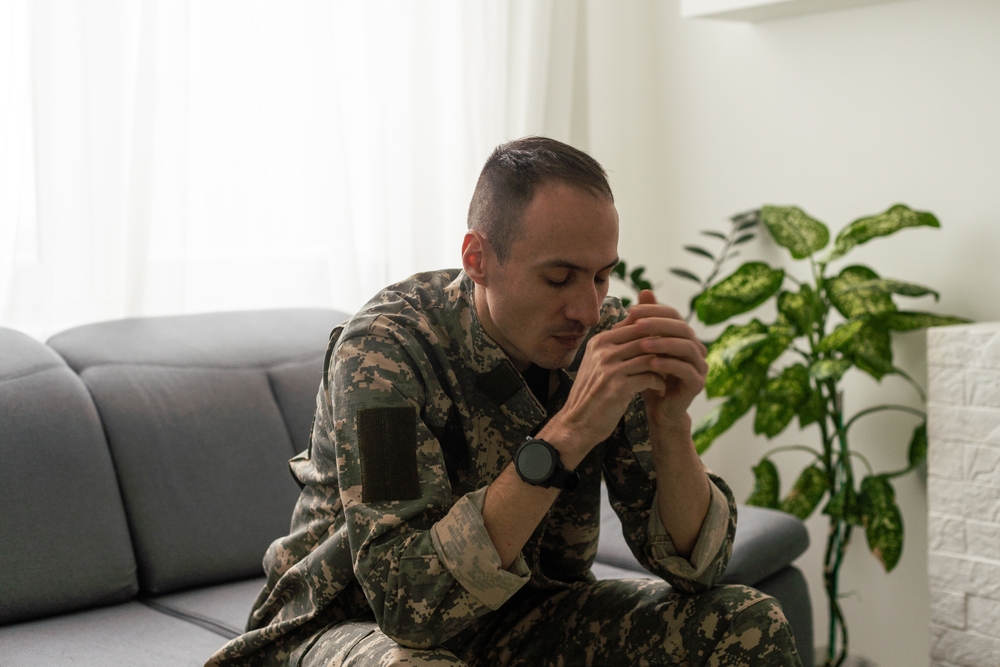Men’s Drug Rehab Programs: What to Expect
June is Men’s Health Month, which is a great opportunity to address men’s mental health and addiction. Substance use disorders (SUDs) tend to be more common among men compared to women. Further, twice as many men as women deal with substance dependence. Various individual and societal factors contribute to how addiction develops in men.
If you are a man or have a loved one dealing with addiction, it’s important to know that men’s substance misuse treatment can help create more positive health outcomes.

Understanding Addiction in Men
Understanding addiction among men starts with understanding the challenges that they often face.
Traditional gender norms and societal expectations for men can be limiting. These tend to include the implied message that men should suppress certain emotions like sadness or vulnerability. Instead, they may feel the need to display self-reliance and avoid seeking help. Research has found that if men are dealing with depression, they may self-stigmatize their condition and, in turn, isolate themselves and not pursue therapy.
Men tend to begin using alcohol and drugs at a younger age compared to women, which is a risk factor for developing an SUD in adulthood. The relationship between adverse experiences like parental discord or physical or sexual abuse and having an SUD is also more apparent among men. Further, compared to women, men with post-traumatic stress disorder (PTSD) are twice as likely to have an SUD.
As a result of isolation and emotional pain, men may use various substances as a way to cope.
Substances Commonly Misused by Men
Men are more likely than women to use most illicit drugs and also experience more severe outcomes as a result of use.
Substances that men commonly misuse include:
- Alcohol: As a group, men use alcohol more than women and also engage in more binge drinking. Learn more.
- Marijuana (cannabis): More men than women use marijuana, and they also experience a greater high. Men who use cannabis are also more likely to misuse other substances.
- Heroin: Men are more likely to use heroin than women and in larger amounts. This also means they are more likely to experience an overdose.
- Stimulants: Men are more likely to use stimulants like cocaine and methamphetamine.
- MDMA (Ecstasy, Molly): Increases in aggressive behavior can occur in men after stopping the use of MDMA.5
- Prescription drugs: Overdose can also occur with prescription drugs, such as opioids used to treat pain. Misuse of benzodiazepines-medications used to treat anxiety and insomnia-can also lead to overdose, especially when combined with alcohol. Learn more.
Addiction treatment is critical to help people overcome drug use and ultimately improve mental health.
Signs and Symptoms of Addiction
The symptoms of addiction, or SUD, include:
- Using the substance in greater amounts or for a longer time than was originally intended
- Repeated unsuccessful attempts at stopping use
- Continuing to use the substance despite it causing problems in relationships
- Not fulfilling responsibilities at work, school, or home
- Continuing to use the substance despite it causing or worsening a medical or psychiatric condition
- Using the substance in dangerous situations, such as while driving
- Developing a tolerance for the substance
- Experiencing withdrawal if the substance is abruptly stopped or significantly reduced
An SUD can be diagnosed if at least two of the above symptoms are present over the past 12 months. In addition, signs of addiction may include behavioral problems, mood problems, or emotions like anger and despair.
Given the challenges that men face and the resulting substance use, addiction treatment specifically for men can help lead to better outcomes.
Benefits of Men’s Rehab Programs
Addiction treatment for men can have many benefits, such as a sense of community, therapies that resonate more with men, and helping men develop a healthy sense of masculinity.

Sense of Community
An addiction treatment program specifically for men can give them a sense of comradery and feel less alone as they see other men having the same struggles. For example, one study found that men in methadone maintenance treatment who participated in a group therapy experienced a significant increase in self-esteem and happiness compared to those who did not participate in the group.
Therapy Tailored for Men
Therapy that tends to be most effective is one that considers the impact of masculine socialization and gender norms. This includes the use of language and metaphors that may resonate more with men. Research has also found that therapy that is action-oriented and focused on concrete goals tends to be more favorable for men.
Building Healthy Coping and Relapse Prevention Strategies
One crucial part of addiction rehab is the development of individually based healthy coping skills for managing stress and emotions. Examples include mindfulness, exercise, and focusing on doing what is within your control. Exercise has been linked to reduced craving for drugs.
Strengthening coping strategies also helps to prevent relapse because it provides healthy ways to cope with a person’s triggers and high-risk situations.
Developing Healthy Masculinity
Healthy masculinity means embracing the fact that men are human and experience a wide range of emotions. Because of mental health stigma, men often feel like they can’t express emotional vulnerability. In addition, some men may find it easier to only be vulnerable with friends or family members who are women.
However, if men are encouraged in the presence of only other men to express emotions and vulnerability, they can learn and accept that it is okay for them to do so.

Men’s Rehab Center Treatment Options
Men’s addiction rehab includes various forms of treatment that are available in different settings.
Inpatient vs. Outpatient Programs
The most intensive form of rehab is inpatient or residential addiction rehab. It involves living at the treatment facility and receiving comprehensive services, including therapy, medical services, and case management. This tends to be a fit for someone with a more severe addiction or co-occurring mental health conditions.
Outpatient addiction treatment is also available for those with a greater severity of addiction but do not need round-the-clock care. For instance, intensive outpatient (IOP) programs involve the person living at home and attending services a few times per week for a few hours each time.
The least intensive rehab setting is outpatient or online counseling, which involves meeting with a therapist once or twice per week. This is generally a fit for someone who has a mild SUD or who has completed more intensive rehab and is working on relapse prevention.
Therapy Strategies
One common therapy strategy in addiction treatment is cognitive-behavioral therapy (CBT), which involves helping you explore how your thoughts, feelings, and behaviors interact with each other. Changing unhelpful thoughts and developing coping and relapse prevention strategies can improve your emotional experience and decrease substance use as a way to cope. CBT is offered through both individual and group therapy.
Another common therapy strategy is motivational enhancement therapy, which involves helping you to sort through your conflicting feelings about substance use and help you to get closer to readiness for making healthy changes.
Alternative Treatment Strategies
Alternative treatment strategies are not traditional therapy techniques, but when combined with traditional therapy, they can help to support and bolster treatment. Examples include equestrian therapy, art therapy, yoga, and mindfulness. Men have reported reduced stress and improvements in emotion regulation from yoga and mindfulness training. More specifically, they found it helpful in managing anger and improving impulse control.
Finding the Right Men’s Rehab Program
Knowing your priorities and needs can be useful in locating the right rehab program for you.
Factors to Consider in Choosing a Rehab Program
Some elements to consider while searching for a rehab program can include:
- Addiction severity
- Which treatment approaches the program offers
- Amenities included at the rehab facility
- If the program is covered by your health insurance
- Cost and location
Resources for Locating Rehab Programs for Men
There are numerous resources available to help you locate the best-suited rehab program.
Resources at the national level include:
- The Substance Abuse and Mental Health Services Administration (SAMHSA) treatment locator
- The SAMHSA opioid treatment program directory
- U.S. Department of Health and Human Services provides information on your rights related to insurance coverage for substance use treatment.
- The National Institute on Alcohol Abuse and Alcoholism provides a 3-step guide to finding treatment for alcohol use disorder.
To find an SUD rehab program in your state or local area:
- Veterans can use the VA SUD program locator.
- To find any treatment programs your state may offer, use this online search tool to find your state’s website along with state agencies such as a Bureau for Behavioral Health or an Office of Health that could connect you with addiction rehab programs.
- SAMHSA also provides a list of addiction support groups and links to their websites where you can search for group meetings in your area.
Sources
- Fonseca, F., Robles-Martinez, M., Tirado-Munoz, J., Alias-Ferri, M., Mestre-Pinto, J., Coratu, A.M. & Torrens, M. (2021). A gender perspective of addictive disordersCurrent Addiction Reports, 8, 89-99.
- Seidler, Z.E., Dawes, A.J., Rice, S.M., Oliffe, J.L. & Dhillon, H.M. (2016). The role of masculinity in men’s help-seeking for depression: A systematic review. Clinical Psychology Review, 49, 106-118.
- The Pew Charitable Trusts. (2019). Men more likely than women to face substance use disorders and mental illness.
- National Institutes of Health. (2020). Sex and gender differences in substance use.
- Fleming, P.J., Ruskin, S., Rojo, F. & Dworkin, S.L. (2015). Men’s violence against women and men are inter-related: Recommendations for simultaneous intervention. Social Science and Medicine, 146, 249-256.
- Substance-related and addictive disorders. (2013). In Diagnostic and Statistical Manual of Mental Disorders (5th ed) Text Revision.
- Amir, J., Behrouzi, M.K., Nader, S., Mohammad-Rafi, B. & Rahmati, M. (2019). The effectiveness of group spiritual intervention on self-esteem. Current Drug Research Reviews, 11(1), 67-72.
- Seidler, Z.E., Rice, S.M., Ogrodniczuk, J.S., Oliffe, J.L. & Dhillon, H.M. (2018). Engaging men in psychological treatment: A scoping review. American Journal of Men’s Health, 12(6), 1882-1900.
- Zhou, Y., Zhao, M., Zhou, C. & Li, R. (2016). Sex differences in drug addiction and response to exercise intervention: From human to animal studies. Frontiers in Neuroendocrinology, 40, 24-41.
- Barrett, C.J. (2016). Mindfulness and rehabilitation: Teaching yoga and meditation to young men in an alternative to incarceration program. International Journal of Offender Therapy and Comparative Criminology, 61(15), 1719-1738.
More Specialty Rehab Programs

Women’s Rehab
Women’s Drug Rehab: Overcoming Addiction in a Supportive Environment According to the 2019 National Survey on Drug Use and Health …

Veterans Drug Rehab
Addiction Treatment Programs for Veterans U.S. military veterans from all branches of service–Army, Navy, Air Force, Coast Guard, Marine Corps, …

Teen Rehab
Addiction Treatment Programs for Teens More teenagers are using illicit drugs than ever before. According to the National Center for …